How Can Forest School Training be Used in a Playwork Setting?
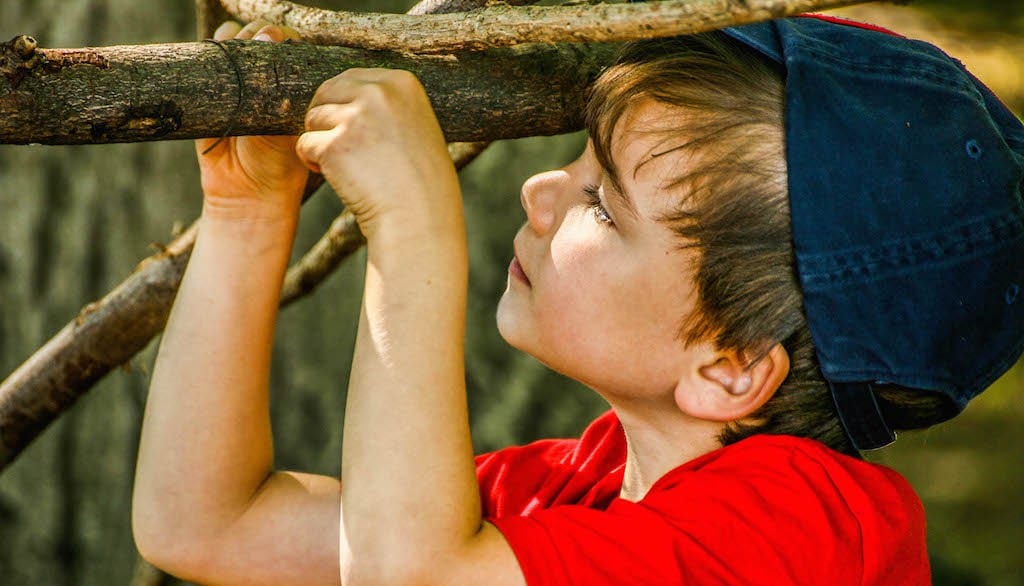
At Smartkidz Play and Learn we have a unique approach that we have developed from years of experience and training in childcare, primary education, playwork and forest school. Our inspiration came from the beautiful environment that we developed as our first site, combined with our belief in child led play.
We were fortunate enough to have a small classroom adjoining a self-contained grassy area with many well-established trees. The different environments and areas meant that with little or no input children were enjoying the space and creating their own creative play situations.
Since then our mission has been to preserve and enhance this by allowing them to access everything they need for their own creative exploration. As we developed further and added to our experience and training more potential was unlocked. Slowly fire pits, junkyards, dens, boats and even caravan hideaways developed as the children guided us to enhance their surroundings.
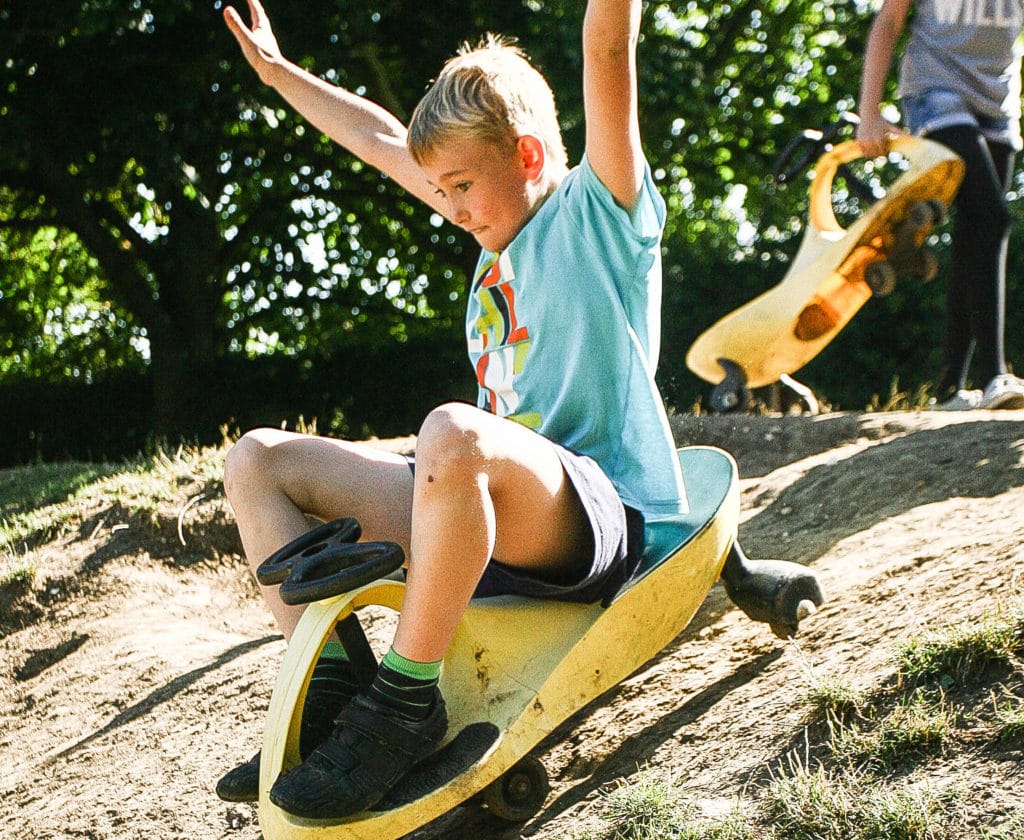
What is playwork?
The playwork principles define play as “a process that is freely chosen, personally directed and intrinsically motivated. That is, children and young people determine and control the content and intent of their play, by following their own instincts, ideas and interests, in their own way for their own reasons.’ Playwork values play and allows children to create their own journeys.
Playwork occasionally has slightly different approaches in different areas and organisations but it always involves trained playworkers. ‘Qualified, skilled playworkers are trained to put children’s play needs at the centre of their work in a variety of settings, enhancing the range and quality of play experiences for all children. (Play England)
One of the most challenging parts of being a playworker is allowing play to happen and not jumping in to help and guide. However, once this is mastered watching children develop their play independently is incredibly rewarding.
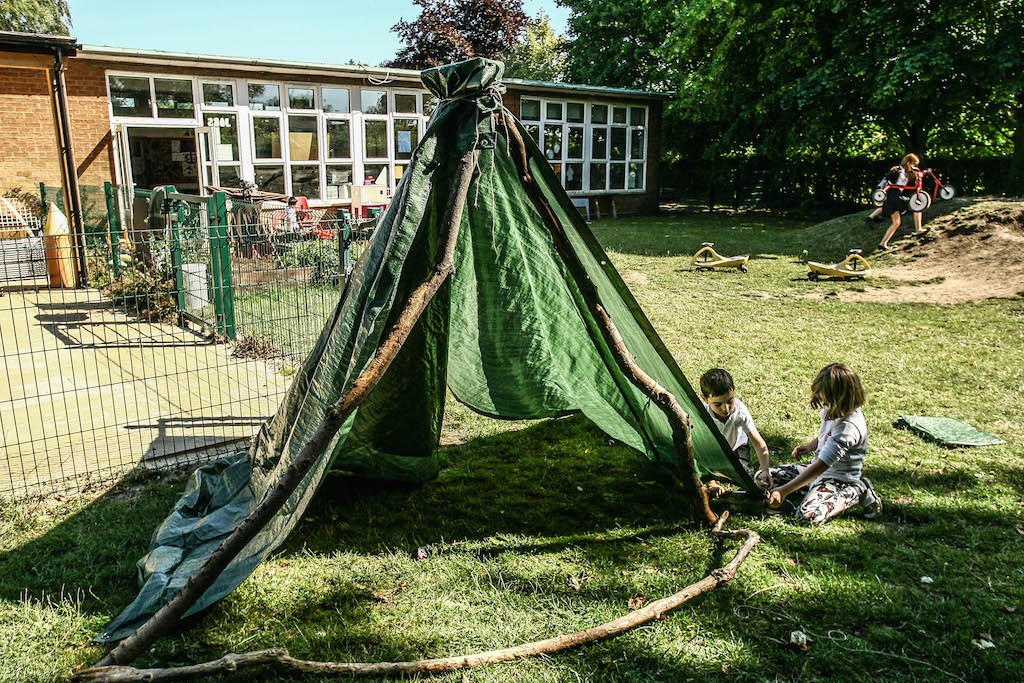
The main features of a playwork setting
A playwork setting is designed so that it will support the playwork principles and allow for children to engage in each of the play types. This can include:
- Access to a wide range of play opportunities.
- Accessible resources.
- Play workers available to preserve play and support if needed.
- A child led environment.
- Free flow between indoors and outdoors
- No access to computers or other information technology.
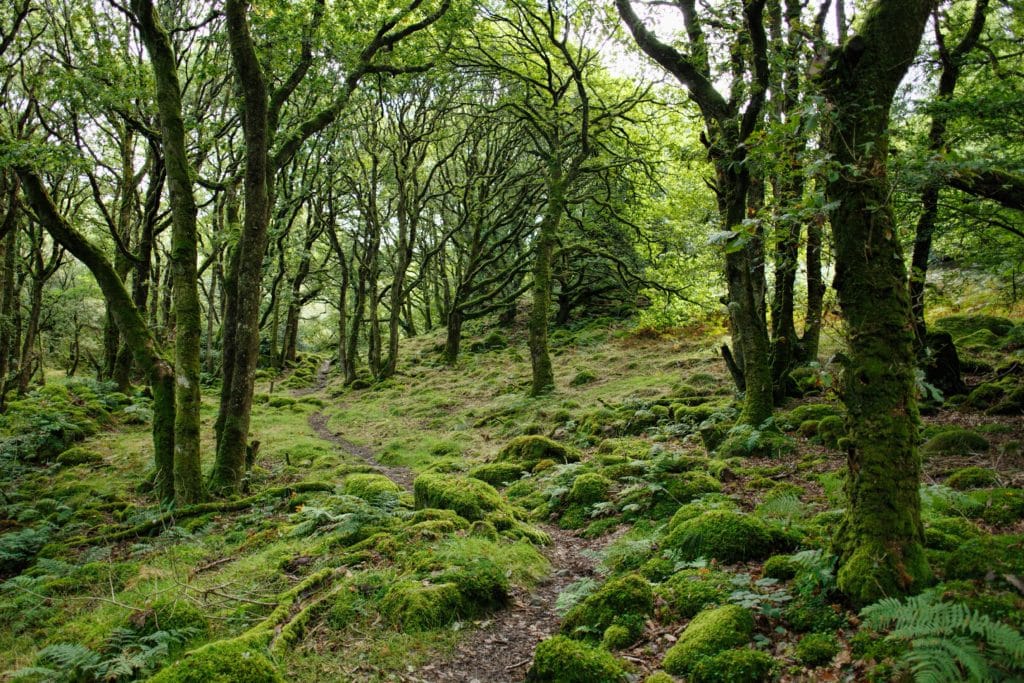
What is forest school?
“Forest School is an inspirational process, that offers ALL learners regular opportunities to achieve and develop confidence and self-esteem through hands-on learning experiences in a woodland or natural environment with trees.” (Forest School Association)
Forest school is a series of regular sessions that captures children’s imaginations and grows a relationship between the children and the natural world. It also follows a set of defined principles.
There are many similarities with play work and children are encouraged make their own choices. However, in order to support learning the adults involved make observations that they use to plan further sessions.
There is also the opportunity to support and encourage children’s approaches and create environments in which they can challenge themselves. They are encouraged to create rules, set personal goals and think about themselves and their progress.
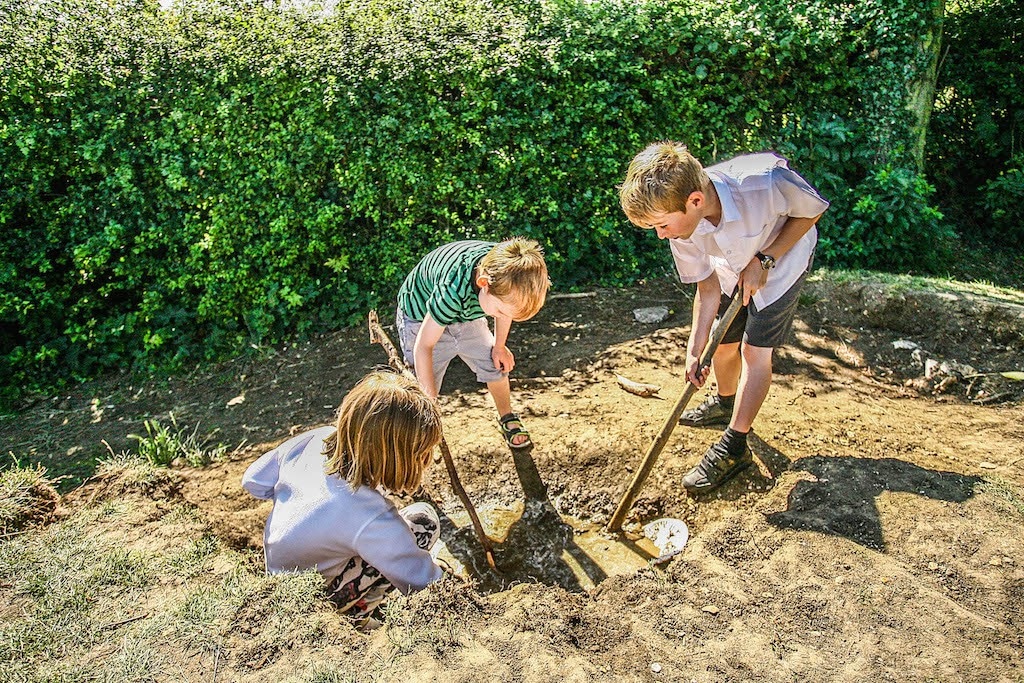
How we work with both within our setting
In our setting we can’t always guarantee that children will attend specific sessions. Sometimes we have children with us everyday for a week and other times they may only attend for an hour. We felt it was important to create something that suited both types of visitor.
What we created instead works for children who come once a month or come every day. Both inside and out we create experiences and opportunities that children can try, imitate, adapt or leave. Children approach, or not, when they are ready and go back to play when they like. Occasionally these opportunities then become part of their play.
Each opportunity is designed to help children to become in tune with nature and get the best from their surroundings in a sustainable manner. We encourage tree climbing and allow children to develop their own sense of risk.

For example, if a child climbs a tree, and are not in immediate danger, we don’t shout, “stop”. We say: “How do you feel?” and support them to make their own decisions about how high to go and when to come down. We often find that the course of action that they suggest is well thought out and practical.
By creating these opportunities, both indoors and outdoors, and allowing children to choose their own path we are seeing their confidence and self-regulation develop dramatically.
Our process is constantly reflective both for us and for the children. We add things to our environment that we think they will enjoy but this comes from our observations and conversations with children. In this way we have seen junk become sledges and packing crates become chariots.
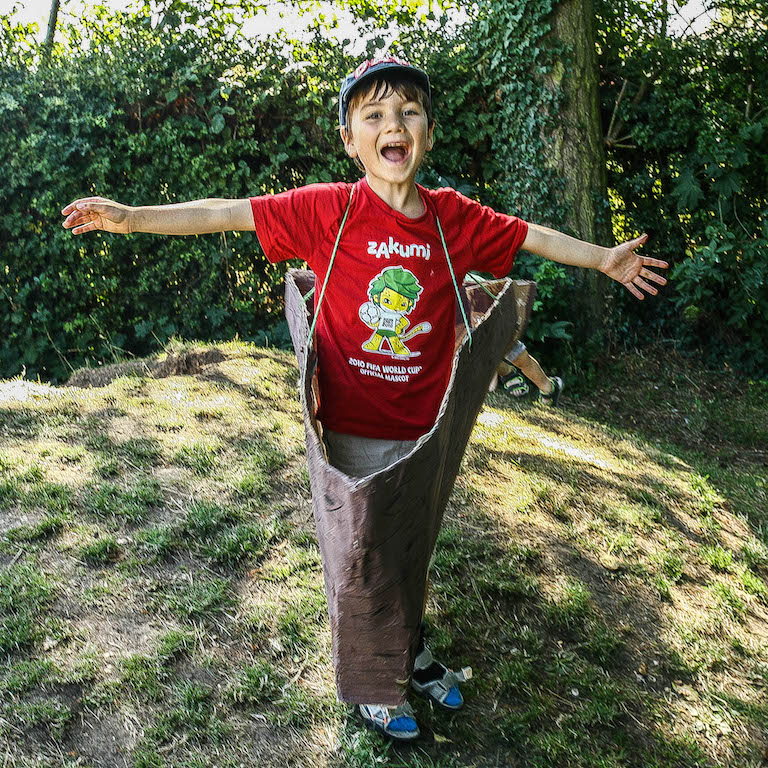
We guide when we feel it is appropriate, but we prioritise play above our adult agenda. We don’t provide a forest school session, but we give children access to woodland skills and activities that develop their tool use and their understanding of a natural environment.
Both playwork and forest school have so much to offer. We have listened to our children and supported them to create and environment in which play can flourish and they can grow close to nature.
Why not come and check it out for yourself?
